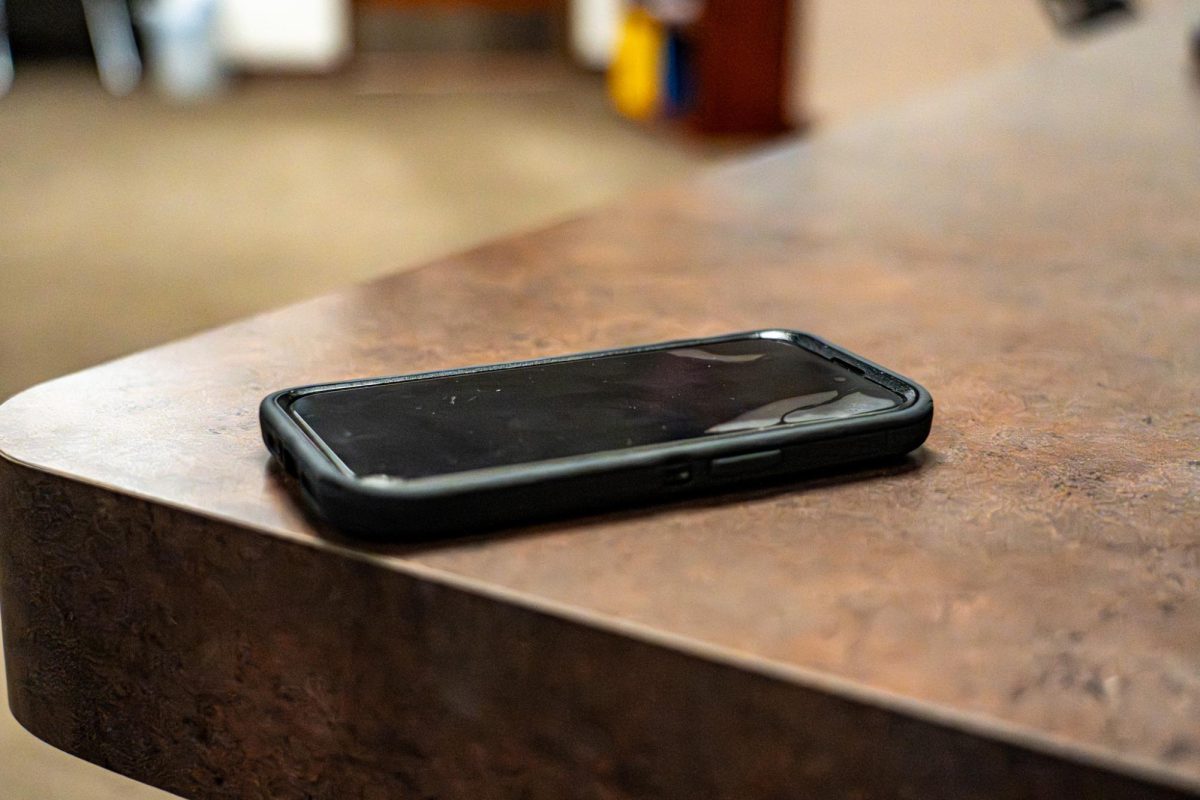While today’s younger generations have accepted and adapted to the rise of technology as the future of society, it seems some are rejecting this idea. The recent state-wide cell phone ban implemented in all Texas schools is a mark of societal regression.
Due to the vast mass production of all kinds of devices, cell phone use has already been long implemented into everyday life in schools. Using phones for scanning QR codes, making reminders for homework, and even certain activities during instruction have all become typical procedures during school hours. Taking out our phones has become second nature, and this is undeniable as a society. A sudden all-out ban on these devices forces schools to re-adapt to an outdated way of operation after finally becoming used to the constant presence of cell phones and other advanced technology. Rather than moving forward alongside the advancement of technology and adapting to it, this law forces schools to fall behind the rest of society and how it changes with the use of personal devices.
Aside from this, students with legitimate needs for personal devices are forced to adapt to this law with no warning and no alternatives. For art students, this means the inability to practice “digital art,” a form of art on digital devices such as tablets or phones that many students use and rely on today for practicing art. Some students also have medical needs that require them to jump through unnecessary, complicated hoops just to get any kind of approval to use a device they rely on during school hours. Many other students have mental health needs that are soothed by music, noise-cancelling, and other things involving “communication devices.” With this ban, students like these are left with no way to properly manage their needs. Even in regards to safety worries, students are left on their own. Katelyn Diamond, a senior student at Weiss, expresses her concern over the matter.
“Whenever there’s a fire drill or lockdown, I always used to have my phone on me to text my parents, especially with how much gun violence there is in Texas,” she said. “With the phone ban, that’s not possible anymore. There are so many other steps we could’ve taken before this.”
Banning devices so brashly like this is not the solution to a larger issue at hand in society. It’s true that cell phone addiction is a real problem in today’s youth, and this could absolutely impact the kind of education students are getting, affecting their attention and performance. However, an all-out ban of all personal devices is a drastic response. As is the case with any addiction, abruptly quitting is detrimental and can even worsen the situation. In no recovery center is it protocol to cut someone’s supply off (often referred to as “going cold turkey”) rather than gradually weaning them off of it. It’s impossible to singlehandedly dictate the control and ban of all communication devices in schools without consequences. Having districts and schools create and utilize their own regulations in regards to device use is a more effective call, as it approaches the issue at a small scale to allow it to be more individualized, empathetic, and particular to each situation, environment, and student. Matt Medina, an AP English Literature teacher at Weiss, opposes the ban, sharing this view.
“Examine the historical context of prohibition,” he said. “It never leads to anything good, especially not long-term. The only real answer is education and implementing complex solutions.”
This statewide device ban is an unnecessary response to the use of cell phones and personal device use in schools. It prevents students and schools from adapting to the steady advancement of technology and is detrimental to an overall bigger problem across our blossoming younger generations.

